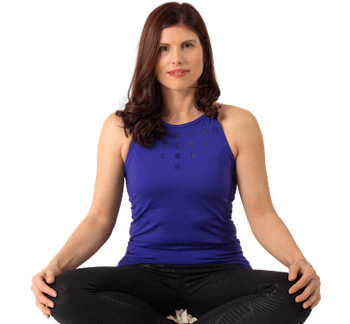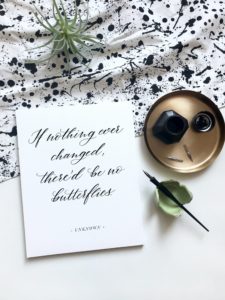Tips to Begin a
Self-Care Practice

By Eva Nagy
This year brought on a lot of different challenges, going from a global pandemic to racial injustice, political division, rising unemployment, and the climate crisis. You might be feeling like you were in a pressure cooker this entire year. With all this discomfort and grief, we have no choice but to adapt to our new reality and change what we need to in order to keep going.
The year 2020 provided the perfect ground for transformation on a global and personal level.
These difficulties changed our day-to-day lives. They changed the way we work and socialize. It might have also changed our values.
Self-care and mental health became a forefront-topic in the media and at work. As we enter the cold months and spend more time locked down in our homes with our families or alone, it is no wonder that dealing with these issues became even more vital.
As a wellness coach and fitness trainer, I have been talking about the importance of self-care for years. I learned that it is a hard concept to grasp for those who are caretakers and who make their responsibilities more important than their own well-being.
If you are one of these people, don’t blame yourself. We have never been taught how to take care of ourselves on this level. It is a new skill that we need to cultivate.
Just because self-care is more excepted today and seems necessary to our everyday survival, it doesn’t mean we know what it is or understand how to apply self-care principles in our lives.
Let me begin with my definition of self-care and why it is a must.
Self-care means that we take care of our essential physical, mental, and emotional needs. As a result, we have a more robust immune system, we have more physical, mental, and emotional energy, and we are healthier and more fit to meet our daily challenges.
The emphasis here is on “essential.” Because one of the most miraculous things about the human body is its ability to adapt, we might be able to exist without self-care for a while, but we certainly can’t be happy or healthy with self-neglect in the long-term.
The truth is that avoiding ourselves might make us seem strong and heroic, but eventually, it leads to a breakdown.
I want to share a couple of important points to consider if you are struggling to adapt to an everyday self-care practice.
1. Develop the skill to listen…
…this time, to yourself.
We can only fulfill a need if we know it exists. After a lifetime of silencing the inner voice that guided us to take a break, move, sleep more, eat healthier, or spend time alone, we might not know what we need anymore. That inner voice got quiet and confused, and we need to fine-tune our ears to hear it again.
 If you can relate to this, here is my first tip for you.
If you can relate to this, here is my first tip for you.
Grab a journal and a pen and find a quiet place and time to answer the following questions every day until self-reflecting becomes a habit.
• What does my body need?
• How do I feel?
• What do I need emotionally/mentally to feel better?
• What action do I need to take to satisfy my needs?
Write down everything that comes to you, even if it feels strange or doesn’t make sense. Don’t judge yourself or try to be perfect.
If you have a hard time answering these questions, be patient and give yourself time.
After something comes to our awareness, we can no longer pretend it doesn’t exist.
Breakaway from the belief that it is impossible to have what you want or need or that there is not enough time or that change is too hard. Open up to new ways of being and living and allow your life to reorganize to mirror your essential needs.
As you become better at listening to yourself, you will notice that you will be able to listen to and be more understanding with others too.
2. Build new habits
The way we act, think, and feel is habitual. We repeat the same things over and over again, even when it doesn’t work, just because we are used to them.
Can you imagine a life where most of your actions, thoughts, and feelings serve your best self and interests?
 It is not easy to break away from being on autopilot, but when we begin to live with self-awareness, it becomes a natural part of us. One choice at a time, we can recreate a new way of living and get closer to our true selves.
It is not easy to break away from being on autopilot, but when we begin to live with self-awareness, it becomes a natural part of us. One choice at a time, we can recreate a new way of living and get closer to our true selves.
On this path, we will meet vast resistance to change. Not only because we act against our old ways, but also from the people around us. The role we play in the lives of others shifts or transforms with this process. When we change, it is normal for others to feel uneasy and unsafe.
What does this change mean to them?
Our relationships bring on one of the biggest challenges of this transformation. Especially because we care about our loved ones and want to be there for them, we need their acceptance and validation. And because we need our jobs. It is hard to say “no“ when everyone is used to our “yes.”
We need to realize that their resistance comes from fear. Fear of change, and fear of losing their role in our lives or losing our role in theirs. By knowing that, we won’t take their resistance personally. To reassure them, we could communicate about what we are going through and, at the same time, acknowledge their fears.
Being vulnerable and transparent becomes a part of practicing self-care.
In this blog, I wanted to share a couple of tips that can bring light to the things that can hold you back when you begin a self-care practice.
Remember that self-care is a journey that unfolds as you become more self-aware. When we realize that there is a need, we will find a way to meet it. Be compassionate and loving to yourself just like with others as you walk this path.
If you have any questions, I am here to support you along the way.
Remember,
You are not alone,
You matter, and
You are loved.
Eva